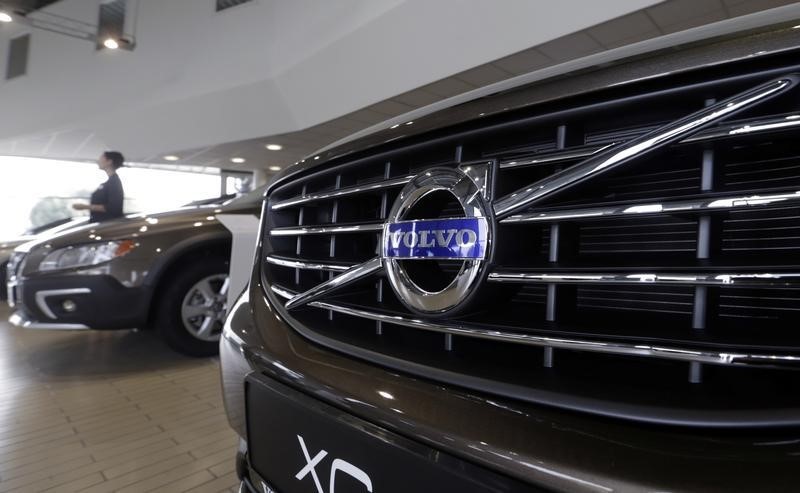By Edward Taylor
PARIS/DETROIT (Reuters) - Sweden's Volvo Cars has chosen a site in South Carolina for a $500 million investment in its first U.S. plant, it said on Monday, targeting a bigger share of the increasingly competitive North American premium market.
Work will begin this year on the factory in Berkeley County, with production due to start in 2018 and quickly reach 100,000 vehicles a year.
The investment is part of a drive by China's Geely
"This is a clear sign of commitment to the revival of our U.S. business," Volvo Cars Chief Executive Hakan Samuelsson said in embargoed comments made before the announcement.
But the move coincides with toughening competition in the North American luxury car market.
Rivals have been ramping up capacity, with many choosing Mexico for its lower wages, non-unionized workforce and access to the United States and other export markets under a raft of free-trade deals.
In total, North American production capacity is set to rise more than 10 percent over five years to 19.6 million light vehicles in 2020, according to WardsAuto forecasts -- with most of the gain coming from new plant investments.
Germany's Audi (DE:VOWG_p), BMW (DE:BMWG) and Mercedes-Benz (DE:DAIGn) are among luxury carmakers that have recently announced new production capacity in the region.
Under Geely's ownership, Volvo has stepped up model investments and added a pair of Chinese factories to its two older European plants.
In the United States, where its sales fell 8 percent to 56,000 vehicles last year, the production investment is key to a medium-term pledge to return to 100,000 annual deliveries.
Volvo also faces tougher indigenous competition from the resurgent Lincoln and Cadillac brands, as parents Ford and General Motors (N:GM) invest a combined $14.5 billion to revamp their line-ups.
Samuelsson acknowledged the tougher U.S. market conditions, while maintaining they would not thwart Volvo's plans.
"We have a premium brand that is very different," he said.
Mexico was also on Volvo's initial "long list", he said, eventually whittled down to South Carolina and Georgia.
Transport links including harbor access were among the decisive considerations that ultimately weighed in South Carolina's favor, according to the carmaker.
"Logistics was one of the most important factors" for a plant that will import large numbers of parts and export some vehicles, Samuelsson said, adding union representation was "not a relevant factor".
According to an environmental permit application filed for the Berkeley County site, the new factory will initially create 2,000 jobs.
Volvo declined to comment on longer-term production goals but said it ultimately planned to employ as many as 4,000 workers -- suggesting the initial 100,000 vehicle output could approximately double if sales ambitions are realized.

(This story has been refiled to correct second paragraph to remove reference to Ridgeville)